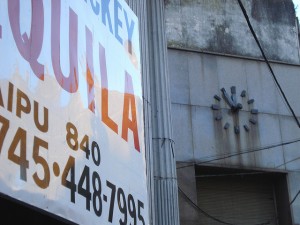However, for some, there is an alternative. Renting is now the new buying. It seems like everyone is doing it and whether you want to upgrade, downgrade or just try a new area, it can be the solution to a sluggish market. It can also be a worry. Stories of terrible tenants and unlucky landlords bounce around the forums. It seems that everyone knows someone with a cautionary tale to tell. Of course, what you don’t hear as often are the success stories where it all came together with a happy ending.
For those considering the renting option, let’s dispel a few myths first. Here are some of the snippets of conversation you might here at your local:
Myth: ‘Tenants have all the rights in Spain. If you’re a landlord with a bad tenant there is nothing you can do about it.’
Fact: At one time this was true. In previous years it was the tenants’ rights that made them king of someone else’s castle. Now the law of urban lettings balances the rights of landlords and tenants in the long-term letting market. Tenants can be evicted quickly for failure to pay the rent, sub-letting without permission and causing a serious nuisance to neighbours.
Myth: ‘They’ll damage your property and leave your house a disgrace.’
Fact: Many properties in Spain are rented out unfurnished. If you are very worried about your furnishings and fittings this is always an option. Alternatively, make sure you have a detailed inventory attached to your contract and signed by your tenants. When they leave the property you should have another inventory drawn up and any differences between the two can be made up from the deposit.
Myth: ‘They’ll run up big bills.’
Fact: You can make it part of the contract that they pay the expendables such as gas, electricity and telephone bills. The water rates and community charge are usually paid by the landlord.
Myth: ‘Don’t bother with a solicitor, they charge the Earth for nothing. Now I know a bloke on our street who’ll have a look at your contract for €20.’
Fact: He might ‘have a look’ but that’s just about it. You can do it yourself and obtain a rental contract from the tobacconists kiosk (estanco). However, getting the contract right is extremely important. For example, you might want to include a clause about using it again yourself or for your children. There are dangers in relying on what the local ‘guru’ tells you.
Myth: ‘Don’t worry about paying your rental income tax, no one does around here.’
Fact: Do worry. The tax authority is keen to draw as much money in as it can. Identifying rented property is not that hard to do. For example, if you are advertising your property to capture tenants or holiday rentals, it might not only be their attention you’re attracting. The Spanish tax authority might be just as interested in your monthly rental price as prospective clients.
For those who aren’t paying tax on their rental income, now is the time to put matters straight. The next deadline for declaring your rental income tax is April 20. If renting is the solution to your dilemma, don’t let tax evasion get you instead.

You didn’t mention Plan Alquilar, a Communidad de Madrid scheme that insures rental payments: they check out the property to make sure it’s fit to rent (and possibly they have some say in how much the rent should be), and they check out the prospective tenants to make sure they can afford to pay the rent. In the event of non-payment of rent, the landlord still receives the money, and I expect the tenants are disposed of quite quickly.